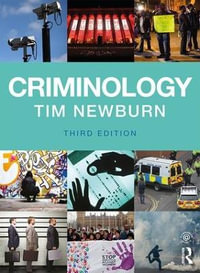Foreword, Rex Haigh, 1. Introduction, Geraldine Akerman Adrian Needs and Claire Bainbridge, Part 1. Emerging principles, 2. Out of context, out of mind? Steps to an ecology of human functioning relevant to forensic psychology, Alethea Adair-Stantiall and Adrian Needs, 3. Some observations on custodial environments and personal development. Adrian Needs, 4. A campaign for climate change: the role of therapeutic relationships within a climate of control, Sarah Lewis, Part 2. Emerging practice in custodial environments, 5. Trauma informed care and "good lives" in confinement: acknowledging and offsetting adverse impacts of chronic trauma and loss of liberty, Lawrence Jones, 6. The importance of personal safety to therapeutic outcome in the forensic setting, Andrew Day, 7. Wearing two hats: Working therapeutically with offenders as a prison officer, Claire Bainbridge, Annette McKeown, Emma Guthrie and Laura Smillie, 8. Introducing the Enabling Environments Award and its relevance to the criminal justice system, Sarah Paget, 9. Making the PIPE dream a reality: A new way of working within the criminal justice system, Kirk Turner, Lucinda Bolger and Claire Bainbridge, 10. Creating an Enabling Environment for high risk offenders with high levels of psychopathic and personality disorder traits, Jenny Tew and Alice Bennett, 11. Implications of a contextual approach to the risk assessment interview, Jo Shingler and Adrian Needs, 12. Enabling environments in a young offender institution: Translating theory into practice. Rachel O'Rourke, Annie Taylor and Kevin Leggett, Part 3. Lessons from therapeutic communities, 13. Prison therapeutic communities: facilitating change in a prison environment, Michael Brookes, 14. Creating a TC from scratch: Where do we start?, Geraldine Akerman and Patrick Mandikate, 15. One flew over the cuckoo's nest: Organisational reactions to the development of a democratic therapeutic community in a high secure learning disability setting, Jon Taylor, 16. The key role of principles and values in social therapy with sexual offenders: Sustaining the heart and soul of the transforming environment, Andrew Frost and Jayson Ware, 17. Staff/service user relationships: their contributions to creating enabling environments. Richard Shuker, Part 4. Stepping outside the institutional context, 18. Life events and transitions: Before and after the custodial setting, Adrian Needs, 19. The role of supportive environments in community rehabilitation with offenders, Dominic Pearson, 20. Overview and implications, Geraldine Akerman Adrian Needs and Claire Bainbridge
























